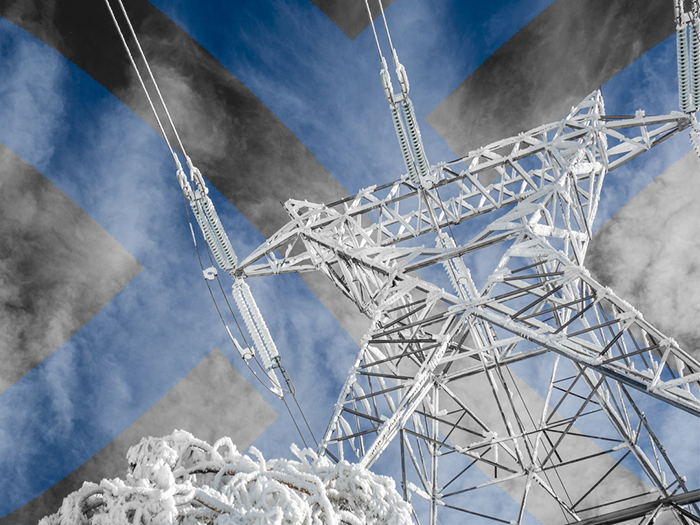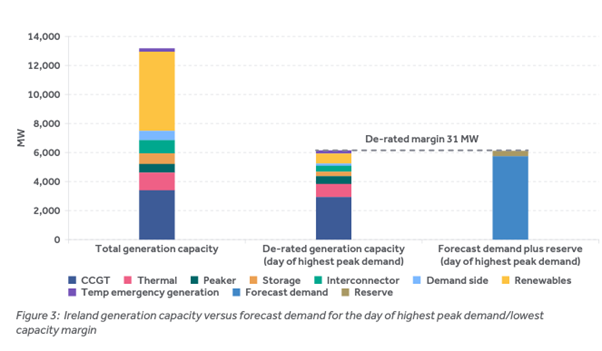News
better business decisions
Posted 2 years ago | 3 minute read

Reduced risk of Winter power outages, says EirGrid
EirGrid has forecast a decreased likelihood of system alerts in the coming months compared to the previous year’s expectations. But there remains a “reasonable probability” of supply falling short of demand.
In its Winter Outlook report, published on 17 October, the grid operator said it expects a peak demand of between 5,480 MW (low demand) and 5,930 MW (high demand) in Ireland this winter with a median demand of 5,740 MW.
The Loss of Load Expectation (LOLE) in Ireland for the five months of the winter period being studied is 21 hours. This is outside the 8 hours per year standard meaning the system will operate at a higher level of risk than is set by the Commission for Regulation of Utilities. The minimum de-rated margin over the winter period is expected to be in the range of -159MW to 291MW.
There is an expectation that the system will enter the Alert State at times, most likely at periods of low wind and low interconnector imports. There is a reasonable probability of the system entering the Emergency State at times due to insufficient generation being available to meet the demand. The Expected Unserved Energy (EUE) figure would suggest that, on average, electricity consumers could potentially be without supply for up to 2 hours over the winter period, with mid-December posing the greatest supply pressure. However, this metric was at four hours last winter, and customers did not experience power interruptions due to grid capacity issues.

Source: EirGrid
The improved outlook for the coming year is primarily attributed to the State-led Security of Supply Programme, which is expected to enhance generation capacity by delivering approximately 270MW of temporary emergency generation this year. Further increments in capacity, including 380MW of temporary emergency generation and additional resources such as batteries, are scheduled for 2024. Testing of emergency units in the North Wall area of Dublin Port is currently underway, and additional gas-fired generators in Huntstown, Co Dublin, are set to begin operation in December. Emergency diesel units in Shannonbridge and Tarbert are expected to be operational by year-end and early 2024. Additionally, the ESB has agreed to keep Moneypoint operational until 2029 for emergency purposes and intends to convert it from coal to oil to reduce greenhouse gas emissions.
Additionally, EirGrid has established arrangements with Large Energy Users to assist the system in case of unexpected challenges with generation capacity.
Although there is still a risk of entering a System Alert (Amber) State during Winter 2023-24, primarily during peak hours and periods of low wind and interconnector imports, the Winter Outlook outlines a reasonable but low probability of the system entering an Emergency State (Red) due to insufficient generation to meet demand. Nonetheless, emergency protocols are in place, including coordination with Large Energy Users, enabling a minimum one-hour notice of any event. These measures, coupled with the increase in capacity, including Temporary Emergency Generation, will aid EirGrid in minimising the impact on households and businesses.



